[Above: Cover photo from the Facebook page of Jesuit Post contributor Marcos Gonzales, S.J.]
The Jesuit Post is an on-line forum founded in 2012 as a platform showcasing the often dissident perspectives of Jesuits (Scholastics) not yet ordained to the priesthood. According to Paddy Gilger, S.J., one of the founders of The Jesuit Post:
“this site is about Jesus, politics, and pop-culture, it’s about the Catholic Church, sports, and Socrates. It’s about making the case for God (better: letting God make the case for Himself) in our secular age.”
Concerning The Jesuit Post, fellow Jesuit James Martin once said:
“The Jesuit Post is one of the best things that U.S. Jesuits have done in the last 10 years. And what’s most amazing is that it was done completely by young Jesuits — men still in formation. In the best of our tradition, they saw a need, carefully discerned how to respond, planned well and then acted. In a short amount of time, it’s become a terrific resource for anyone interested (even remotely) in Jesuits, in the Church, and in the way that God is at work in the modern world.”
On the topic of homosexuality, the contributors to The Jesuit Post have taken a resoundingly progressive stance; here are some examples:
When discussing a controversial 2013 document issued by the Family and Society Council of the French Bishops’ Conference, which called for debate on the possible acceptance of same-sex relationships, Eric Sundrup, another co-founder of The Jesuit Post, wrote:
In a climate where most discussions are narrowly focused on the Church teaching that homosexual actions are dis-ordered because they are not oriented toward procreation and, hence, that homosexual persons are called to chastity, acknowledging and respecting the lived reality and sincerity of homosexual persons is essential.
He continued:
There is nothing earth shatteringly new in the document. They are not proposing any new teachings. Yet the French Bishops Council – by looking closely at the real aspirations and desires of homosexual persons for meaningful relationships – avoids the quagmire of reducing all discussion of homosexuality to a simple call to chastity and thus radically alters the contours of the discussion. In a discussion that all too often leaves homosexual members of the Church feeling left out or personally attacked, such sincerity and compassion is crucial. As a Church I feel that we have failed too often in this regard.
Which is why I am so encouraged to see a document that takes the desire of homosexual persons to love and to be loved seriously. Surely much good can come from acknowledging that homosexual people might not be aiming to destroy marriage, but instead yearning honestly and openly to find a path to live full, loving, and relational human lives.
Later, in 2013, he wrote about a decision by the gay periodical “The Advocate” to name Pope Francis as its person of the year:
Many Advocate readers couldn’t have imagined Francis as the Man of the Year (nor could I); they had trouble imagining a way for the LGBT community to speak about him without denouncing him. Many wanted denunciations and instead The Advocate gave them a message of hope. After a few minutes of stunned silence, I started to grin. I’ve seen this before! I’ve watched this same reaction unfold in Catholic circles across the web for an entire year, especially about abortion, contraception, and same sex marriage. The culture warriors wanted denunciations of positions contrary to Church teaching, and instead Francis gave them a message of hope.
He continued:
Yet rather than let the struggle drive them away from hope and dialogue, The Advocate quotes Equally Blessed:
Pope Francis did not articulate a change in the church’s teaching today, but he spoke compassionately, and in doing so, he has encouraged an already lively conversation that may one day make it possible for the church to fully embrace gay and lesbian Catholics.
James Martin recommended that particular article and posted the link on his official Facebook page.
When asked about what he meant when stating that the LGBT community has not “received” the teachings of the Church concerning homosexuality, during a 2017 interview with James Martin for The Jesuit Post, he said:
To take a theological perspective, a teaching must be “received” by the faithful. It’s a complex topic (and I am no professional theologian) but, in general, for a teaching to be complete it must be appreciated, accepted and understood by the faithful. The tradition is that the faithful possess their own inner sense of the authority of a teaching. That’s the sensus fidei or sensus fidelium. You can find out more about it in the Vatican document Sensus Fidei. Here’s a quote that’s helpful:
The sensus fidei fidelis is a sort of spiritual instinct that enables the believer to judge spontaneously whether a particular teaching or practice is or is not in conformity with the Gospel and with apostolic faith.
This has always been part of church teaching. In any event, it seems like the majority of the LGBT Catholic community does not agree with the church’s teaching on same-sex relations: that is, they are impermissible. From what many LGBT people tell me, that particular teaching doesn’t fit with their own experiences as human beings who love and are loved. So that teaching, it seems, has not been “received” by the LGBT community, which is the community most affected by it.
Here’s an example: a longtime friend of mine named Mark, was in a religious order for a few years (not the Jesuits). After he left, he came out as a gay man, and entered into a relationship with another man. For the last 20 or so years, they’ve been together and Mark has also cared for him through a serious, long-term illness. So one question for the church is: Is that a form of love?
Also, from 2017, a young Jesuit shared his experiences when he spoke at an IgnatianQ conference sponsored by the LGBTQIA+ ministry at The University of Santa Clara; when asked by a lesbian student attending the Conference about the possibility of being “gay” and Catholic, he responded:
Connect and speak to each other. Share your truth. Take advantage of this time together. And pray. By doing this you will discover how God invites others to answer the same questions you’re asking. And I bet you’ll uncover answers to other questions as well!
From the IgnatianQ website at The University of Santa Clara:
IgnatianQ is a student-run and student-focused Ignatian LGBTQIA+ conference. IgnatianQ brings together the community of LGBTQIA+ folks (and allies) at Jesuit universities from across the U.S. We are an affirming community, brought together in part by our common experiences of marginalization and exclusion. As LGBTQIA+ people, we believe that our own desire for social justice and the Jesuit values that inform our education are forces that can and should work together for a more just and humane world. As we explore the intersections of sexuality, gender, and spirituality together, we strive to educate and empower the whole person.
The University also offer a “Rainbow Buddies” program which pairs younger LGBT students with a mentor; according to their web-page at the University’s official site:
Through Rainbow Buddies, you will have someone that you can rely on for support and guidance with all things gender and sexuality. You can ask questions and receive advice in a safe, private environment, and learn what can take others years to discover.
At Santa Clara, there is also an annual “Lavender Senior Ceremony” for graduating LGBT students, and the “Santa Clara Queer” group which welcomes discussion concerning various sexual identities, including: “asexual, demisexual, androgynous, agender, transgender, intersex, pansexual, bisexual, queer, questioning, lesbian, and gay, to name a few.”
In 2015, the same contributor praised a series of articles appearing in “The National Catholic Reporter” detailing the gay-affirmative parish of Most Holy Redeemer in San Francisco; here is an excerpt from one of the articles:
When applied to religious or clerical life, the virtue of chastity is viewed as a gift given to a relative few — those who enter religious communities or become priests. When applied to LGBT people, there is no talk about chastity as a “gift.” Rather, the institutional church teaches, it is a demand, an obligation, across the board, for all. LGBT people, the church teaches, must refrain from all sexual intimacy.
This seemingly impossible demand and concomitant threat of serious sin has sent countless young LGBT Catholics into confusion and self-loathing and even to suicide.
He also discussed his own concerns, and of those close to him, about the possibility of becoming a “gay” Jesuit:
Some were troubled that I’d find difficulty as a man of color in an ostensibly all-white male order. Others feared I would be forced into the closet after seventeen years of accepting myself as gay.
According to a 2005 Vatican document concerning the discernment of vocations to the priesthood:
…this Dicastery, in accord with the Congregation for Divine Worship and the Discipline of the Sacraments, believes it necessary to state clearly that the Church, while profoundly respecting the persons in question, cannot admit to the seminary or to holy orders those who practice homosexuality, present deep-seated homosexual tendencies or support the so-called “gay culture.”
Immediately following the 2015 Obergefell decision legalizing same-sex marriage, Jason Welle, S.J., published an article entitled #LoveWins in which he recounts childhood memories of his lesbian grandmother and her same-sex partner; he wrote:
This weekend, I’m thinking about Nana & Dot as the Supreme Court has ruled that marriage is to be considered a civil right for all couples, without exception. This week, thousands of couples in the United States will not have to endure a life of secrecy and legal uncertainty. This ruling means that their unions have the law behind them. Their families will be treated equally by the states, they will not risk losing their children and property because someone else disapproves of their union…I know there will continue to be objections from those who believe that gay and lesbian relationships are immoral or that same sex marriages can simply not be recognized as proper marriages, fellow Catholics and other Americans of good will among them.
He continued:
The trending hashtag on Twitter this weekend is #LoveWins. I hope that this will be true for everyone of goodwill in this nation, regardless of their view of this decision. While the legal case may be settled, it does not bring everyone into agreement. But I sincerely believe that when they’re at their best, the United States of America and the Catholic Church are about the same thing: enabling and inspiring people to greater love, fidelity, and mutual care.
But probably the most controversial article published on The Jesuit Post also appeared after the Obergefell decision; submitted by the Editors of The Post, the article titled #LoveHurts tacitly approves of the Supreme Court’s ruling while seeming to uphold Catholic teaching on marriage:
Many of us know people in same sex relationships of authentic love. We have come to understand that love, fidelity, and mutual commitment are worth being grateful for, regardless of the genders involved. We know the real hardships our loved ones suffer on account of not having the same rights as their heterosexual counterparts – whether through actual discrimination on the part of the government or through internalized perceptions of inferiority and worthlessness. We can, and do, celebrate the relief and affirmation they are experiencing right now.
They added:
For those who support it, yesterday’s ruling is against injustice and for equality. It is not, by any stretch of the imagination, against religion and for immorality. And there’s a danger if religious voices continue to react as if advocacy for same-sex marriage is in itself a form of religious persecution. It simply is not.
In 2013, a young Jesuit shared his thoughts about encountering those who identity as LGBT when he was a student at St. Louis University:
While I had many gay friends at SLU, it was still a relatively closeted community. When I began working and studying at UW-Madison many of the students I encountered identified openly as Queer…My understanding of the students’ unique and often challenging circumstances with family and friends, their network at the University, and their efforts to educate others about Queer issues grew tremendously. I became an active supporter of LGBTQ student groups and programs, an ally, if you will.
He goes on to describe how a critical comment from a professor, who took issue with a pro-gay button that he wore to Mass, shook his faith in Catholicism; later, he wrote:
But my faith persists. I’ve since entered the Society of Jesus, and as a Jesuit scholastic I’m grateful to have heard other voices in the community of faith. I’m happy to seek out places of encounter, of welcome, and of dialogue. I’m back on campus at another Jesuit university for my philosophy studies. Recently there have been panels on Queer Theology, free showings of “Dallas Buyers Club,” and programs discussing LGBT issues and Ignatian spirituality. I regularly hear “Same Love” blaring in the gym.
In 2013, when the Defense of Marriage Act (DOMA) was repealed by the Supreme Court, thus paving the way for same-sex marriage, the Editors of the Post wrote:
Among many of our friends — gay and straight, active Catholics and “raised Catholics,” religious and non-religious — there was a sense of celebration…At the same time, our bishops issued a statement declaring yesterday “a tragic day for marriage and our nation.” And we noticed — in all honesty, we felt ourselves — an uncomfortable silence among voices that often speak about matters involving religion and public life.
They concluded:
Here, then, is what we can say: there is something to be learned in that uncomfortable silence; there is something to be learned from the fact that denunciations are less credible — by far — than images of rejoicing and gladness.
From 2013, reacting to NBA player Jason Collins “coming out” as a gay man:
The NBA might not be the place we look to for unconditional love. But when Jason Collins bravely confessed in Sports Illustrated on Monday, “I’m a 34-year-old NBA center. I’m black. And I’m gay,” the responses from the League moved me. When a person comes out, they’re asking society to recognize that they know and accept themselves. At the heart of the church’s teaching is the fact that God already knows, accepts, and loves us, without us having to ask for it all.
In the Church of Pop, Our Lady Gaga points to an important truth (and, perhaps unknowingly, affirms the teaching of the Catholic Church and the example of Our Lady Mary) when she reminds us “That God makes no mistakes” and “Baby, [we were] born this way!” As she says, there is no sin in being who we are as God made us, whether gay or straight, tall or short, black or white, and anywhere in between.
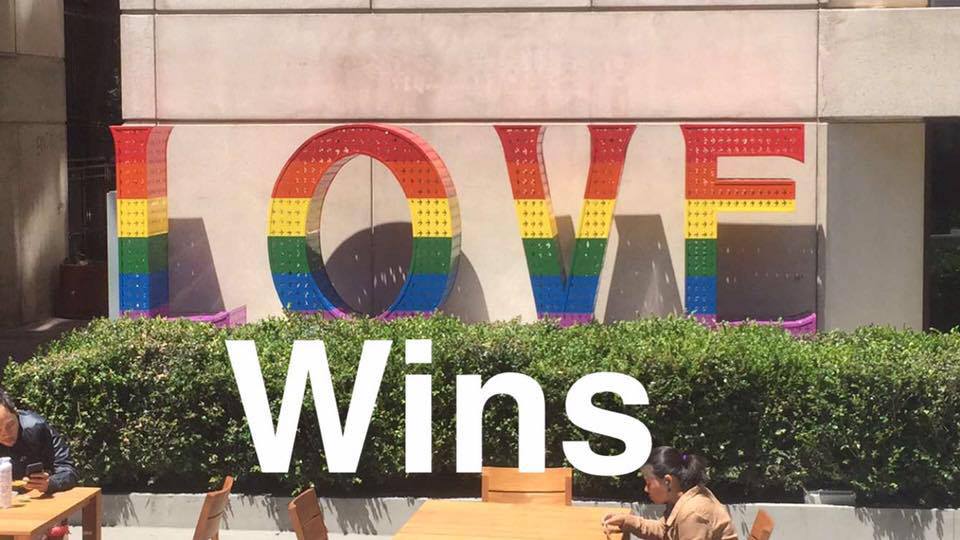
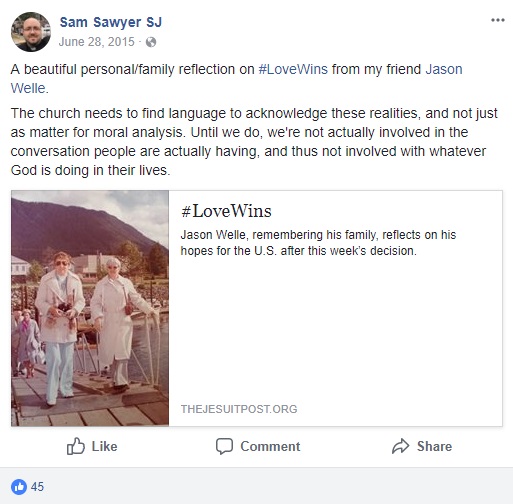


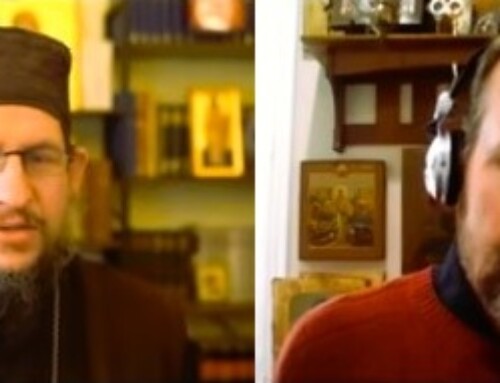
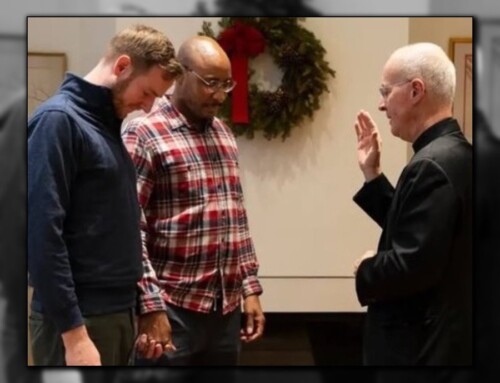
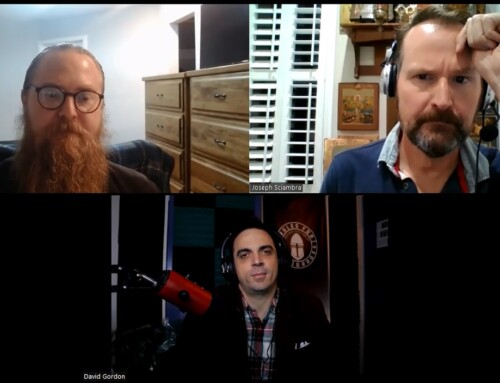
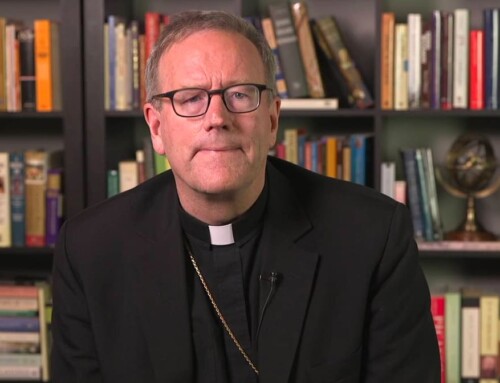
They certainly are not making it easy for gay Catholics to stay chaste.
Joseph, I am mentioning your site in many comboxes, for the Quest Conference. If you can, could you leave it up for awhile? I cannot imagine anything that illustrates the priest pederasty problem better than that header. (a boy’s hand on one side, a man’s on the other, flirtatiously walking toward each other, over a bridge of blocks. It is shocking to see how blatant they were in creating this. People should find it illuminating, although shocking.
Thank you, Joseph for this post. “A prophet is never accepted in his own country.” This is why there are few comments on your post here. American culture’s vices of impurity, lust for power and money keeps the faithful blind from the TRUE problems in the Church – especially the deadly, venomous and diabolical influences stemming from the institutional evils of the Jesuits and a need for reform and renewal of religious life – their universities, etc. The problem of the Vatican, heirarchy, bishops and priests stems from the evils inside the highest vocational call in religious life where the gravest evils are perpetuated and in need of extraordinary purification.